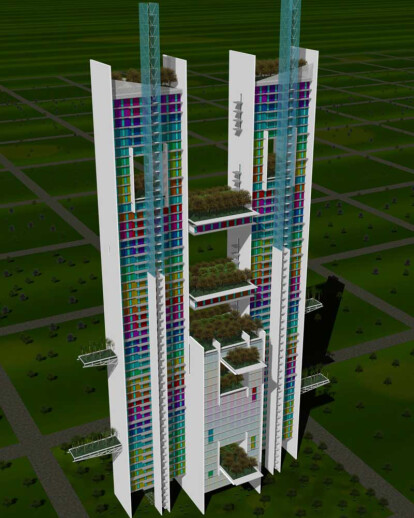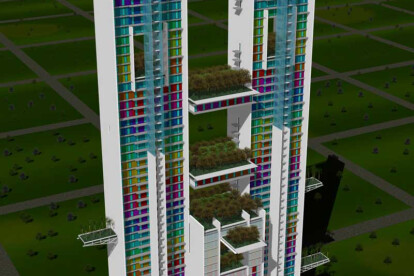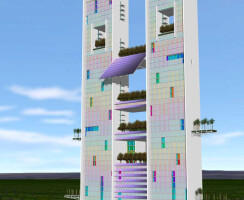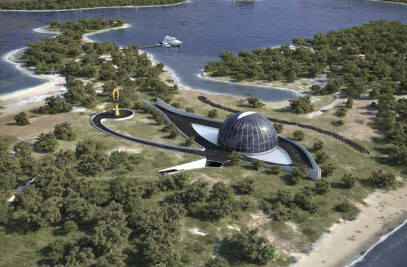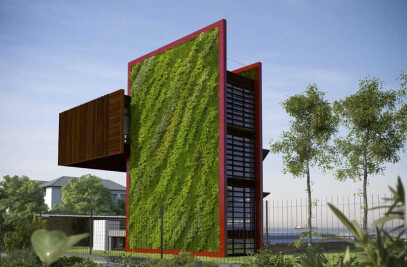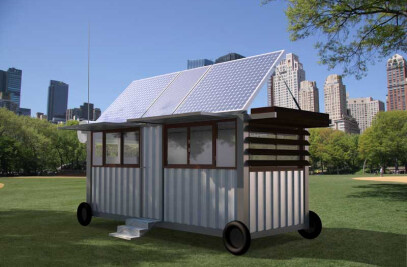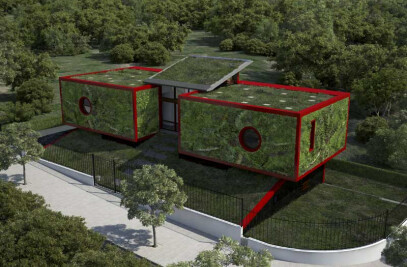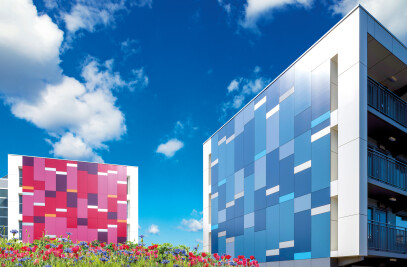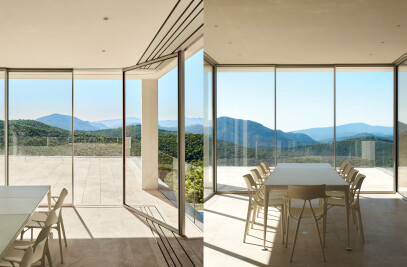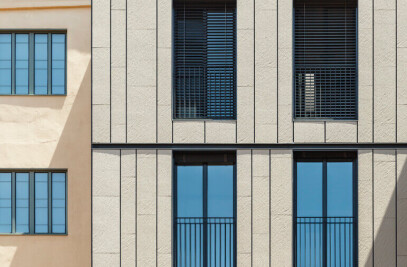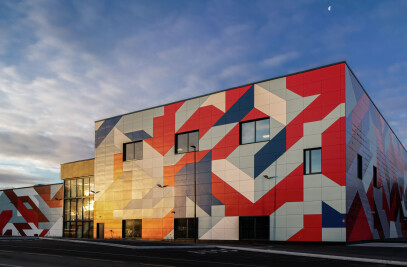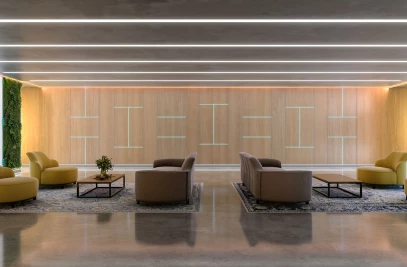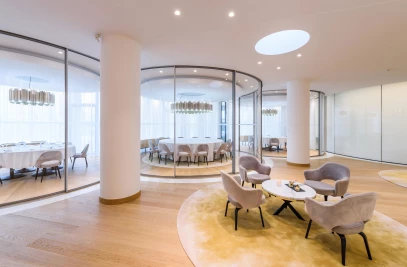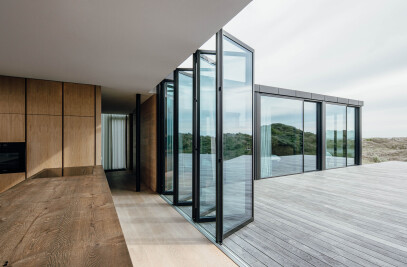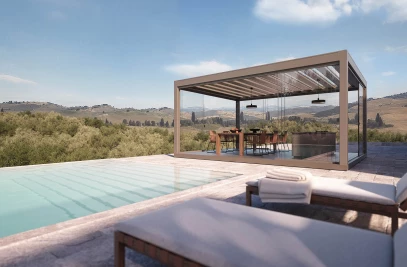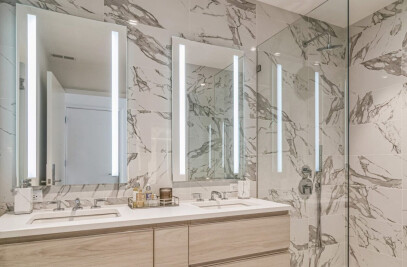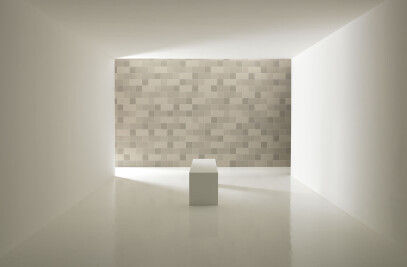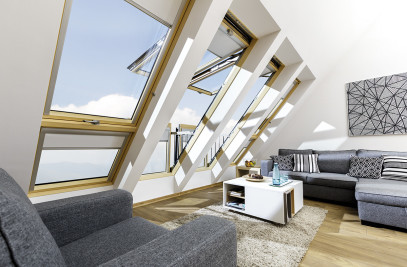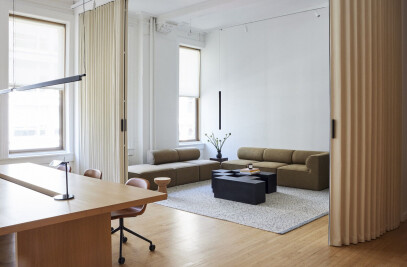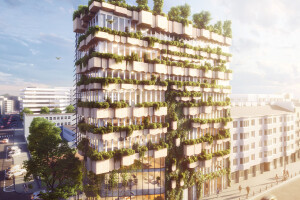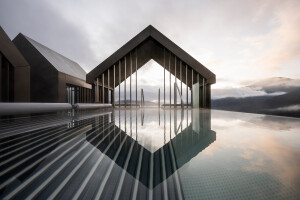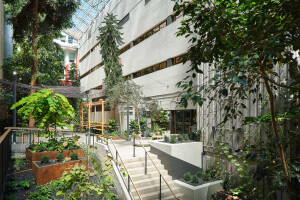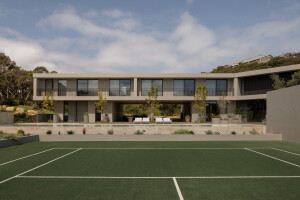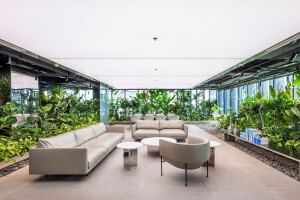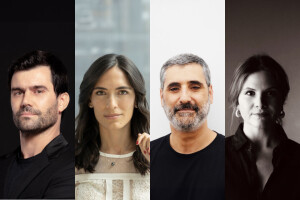The first objective of the project "Neopolis" is lowering the price of housing construction.
It is evident that housing prices could be controlled and reduced, using much more effective mechanisms, such as:
- Limit land prices and speculation (buying cheap land and then rezoned for housing),
- Check the disproportionate benefit of the promoters (including the administration wants benefits in many cases similar to the private developer), and
- Check the funding of political parties, urban planning and control competencies of the municipalities by the central government.
With these three actions, it is likely that the price of existing home sales down more than 50% in some cases.
However, society has, in time, tools to defend against abuse of power, and against monopolies "de facto" illegal.
Thus, Luis de Garrido has proposed a purely architectural systems to lower the cost of housing construction, and therefore, with the permission of the management and promoters significantly reduce the sales price of homes, making them accessible to citizens .
The systems proposed in the "Neopolis" to reduce the cost of housing construction are:
1. Increase the number of building heights, reducing the cost impact of land prices in homes.
2. Achieving a high level of industrialization and prefabrication of all components of the building, reducing costs considerably.
3. Sell partially constructed spaces. Thus, the buyer has at the time of buying a basic house that meets their present needs, and an empty space, which can extend your home, meeting the needs you may have in the future.
With these three strategies, purely constructive, it can reduce the cost of building houses up to 40%. The first two strategies are already known, however, Luis de Garrido the optimized. However, the third strategy is completely new in the current promotion of housing, and offers the citizen the same kind of housing that has always existed throughout history: a home that can expand as you wish.
The type of housing proposal includes two modules of 50 m2 each. One of the modules is fully built, and has a lounge, kitchen, bathroom and bedroom. The other module is provided initially empty, and allows sequential expansion of housing for its occupant.
- Thus, the citizen has a home initially of 50 m2 and an area of 50 m2 (which may be a terrace or garden).
- In a second stage, individuals may extend the 25 m2 built, increasing the number of bedrooms and bathrooms, and increasing the area of the room. In this case, the empty space (terrace or garden) is 25 m2.
- In the third stage, individuals may extend the 25 m2 built, increasing again the number of bedrooms and bathrooms, and increasing the area of the room. In this case, the surface of the house is 100 m2, and there is no empty space.
The two extensions can be made directly by the homeowner, using prefabricated components, or using the building system you want, without planning permission, or skilled labor.
The most important thing is that the proposed construction system (based on precast 25 m2 each) can easily accommodate both the original dwelling, as the successive enlargements.
Thus, the user purchases the property it needs, without jeopardizing his life.
The current housing problem arises because young people want a home that meets your current needs (individual or couple), but not satisfied with a very small house, because they do not meet the needs they may have in their future (family). Neither want to buy a small house, since its revaluation is much lower. So buying a house just above their means. Buy a house with an area larger than they need, with money that do not have. And they end up jeopardizing his life, welfare, and your level of happiness.
However, the proposed system allows the citizen to buy only what you need (with a very low cost), without jeopardizing his life, and without reducing their expected returns and accounts (as it has the chance to end up with a large house). That is, the degree of flexibility of housing is so great that it can satisfy, without speculative premium, the needs of its occupants at all times.
Another highlight of the project innovations "Neopolis" focuses on the bathrooms and kitchen.
1. Mobility. All bathrooms and sanitary kitchen furniture are mobile Thus, the user can move them and place them where you want at any time.
2. Reconfiguration. All sanitary appliances, including bathroom and kitchen fittings, can be relocated easily, without specialized labor, without generating waste and without having to work. The user can remove, replace, or dispose elsewhere, all items in the bathrooms and kitchen.
3. Renewal. Bathrooms and kitchens are made s base panels of various materials: wood, stone, ceramics .... Assembled dry, hermetically. In this way the user can remove and replace the various tiles with new ones, without generating any debris, and without specialized labor, and without spending more money than the cost of material.
